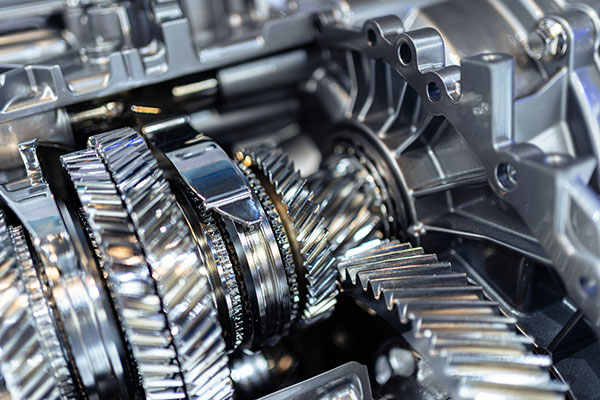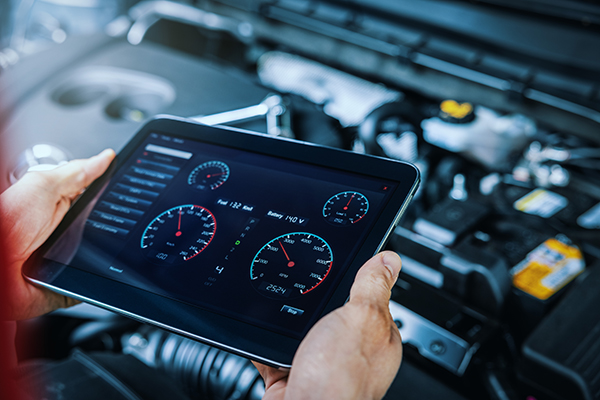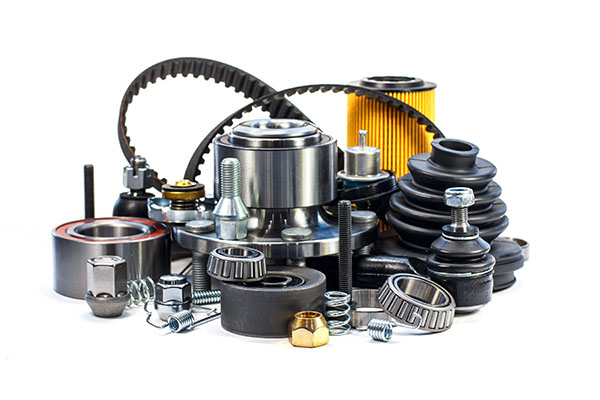Posted on 12/4/2023

When you turn the key in the ignition, your car should ideally start. When it doesn’t in that scenario, the frustration will certainly set in, but fear not – we've got you covered with some troubleshooting tips to get your wheels turning again. Step 1: Check the Basics Begin with the basics. Ensure that your car is in "Park" or "Neutral" and that you've pressed the brake pedal. Sometimes, a simple oversight can be the culprit behind a stubborn engine. Step 2: Inspect the Battery A common cause of starting issues is a weak or dead battery. Check for corrosion on the battery terminals and ensure they are tightly connected. If your battery is more than three years old, it might be time for a replacement. Step 3: Listen for Clicking Sounds When you turn the key, listen for clicking sounds. If you ... read more
Posted on 11/27/2023

You're cruising down the highway, minding your business, and then, your car seamlessly shifts gears, almost as if it understands the road ahead better than you do. How does it do that? How does your vehicle magically know when to switch gears, ensuring a smooth, uninterrupted ride? Well, today, we will talk exactly about that, so continue reading if you want to find out! How Does It Work? Automatic transmissions are at the forefront of our automotive journeys, working tirelessly to ensure our drives are not just efficient but also pleasurable. At their core, these transmissions operate on a complex system of hydraulics, electronics, and mechanical components, all collaborating harmoniously to deliver the perfect gear shifts. The Torque Converter One of the crucial components of this system is the torque converter, which serves as the communication hub between the engine and ... read more
Posted on 10/31/2023

Maintenance, check-ups, tires, and everything else - vehicles need quite a lot of things done to function properly. But one simple service can save you from evolving problems and keep an eye on every single component - inspections and check-ups! Car inspections, aka check-ups, are systematic evaluations of your vehicle's condition. They involve thorough checks of various components, from brakes to emissions, to ensure safety, reliability, and compliance with environmental standards. Regular inspections help detect issues early, preventing costly repairs and maintaining your car's overall performance and value. 1. Safeguarding Your Investment: Why Car Inspections Matter Your car is more than just a means of transportation; it's an investment. Regular car inspections serve as a protective shield for your investment. They help detect and address issues in ... read more
Posted on 9/28/2023

So, you've got a trusty Honda, but you're itching to take its performance to the next level? You're in the right place! We're here to share some easy and creative ways to give your Honda a performance boost. Some are more enthusiastically orientated, and others can be done by everyone. Before We Start: Tune-Up Your Car Before diving into any performance enhancements, ensure your Honda is in tip-top shape. A well-maintained engine is essential for achieving better performance. Change the oil, replace spark plugs, check the air filter, and ensure all systems function correctly. 1. Upgrade the Air Intake One of the simplest ways to boost your Honda's performance is by improving the air intake system. Aftermarket cold air intakes allow your engine to breathe better, resulting in increased horsepower and torque. Plus, they often come wi ... read more
Posted on 8/30/2023

The world of classic cars is a realm where nostalgia, craftsmanship, and automotive artistry converge. For enthusiasts seeking to own a piece of automotive history, the 25-Year Import Rule provides a gateway to a treasure trove of vintage vehicles. But what is this "Rule" and why is it so important? ○ The 25-Year Import Rule The 25-Year Import Rule, established by the United States government, dictates that vehicles manufactured outside the country can be imported and registered in the U.S. once they reach 25 years of age from their original production date. This regulation was implemented to ensure that imported vehicles meet safety and emissions standards. ○ The Gateway to Asian Classics ... read more
Posted on 7/27/2023

Boost controllers are essential components in turbocharged engines, allowing drivers to precisely control and optimize the amount of boost pressure delivered to the engine. Whether you're a performance enthusiast or simply curious about the inner workings of turbocharged systems, understanding how boost controllers work is key. In this blog, we will delve into the fascinating world of boost controllers, exploring their purpose, types, and functionality. ○ What is a Boost Controller? A boost controller is a device that regulates the amount of boost pressure generated by a turbocharger or supercharger, controlling the amount of air forced into the engine's intake system. By manipulating boost levels, the engine's power output and performance characteristics can be adjusted to meet specific requirements. ○ &nbs ... read more
Posted on 6/29/2023

The world of motorsports has always been dominated by renowned names from Europe and the United States. However, over the years, Asian car manufacturers have emerged as formidable contenders, making their mark on racing events and series globally. From Japan's iconic Honda and Toyota to South Korea's Hyundai and China's Geely, Asian car manufacturers have shattered stereotypes and displayed their engineering prowess on the racetrack. If you want to learn a little bit more about Asia's rich racing history, continue reading! ○Japan's Pioneering SpiritIn the 1960s, Japanese car manufacturers Honda and Toyota took their first steps into motorsports, laying the foundation for future success. Honda made its presence felt with the legendary Honda S800, which showcased its engineering capabi ... read more
Posted on 5/31/2023

Revving up the excitement and leaving a trail of burning rubber, Formula 1 (F1) cars have captured the hearts of motorsport enthusiasts worldwide. While most of us are familiar with ordinary car engines that power our daily rides, F1 engines take the concept of performance to a whole new level. Buckle up and get ready for a thrilling ride as we dive into the fascinating world of F1 engines and uncover what makes them so different, unique, and utterly mind-blowing! Roaring Powerhouses Picture this: You're driving down the street, feeling the engine's gentle purr beneath you. Now, multiply that by a hundred - F1 engines are like symphonies of raw power and sound. While ordinary car engines deliver decent performance, F1 engines are purpose-built for speed and performance, producing an ear-splitting roar that can make your heart race faster than the cars themselves. Lightweight Engine Blocks When it comes to F1 engines, weight matters. Every gra ... read more
Posted on 4/29/2023

Have you ever noticed the numbers on the fuel pumps - for example, 87 or 91? Well, if so, you probably don't know what it means, just like a lot of other people. Below, you will find what they exactly mean, what is important, and how to find the right one for your vehicle, so if this has piqued your interest, continue reading. Octane Ratings Explained Let's start with the numbers, which normally start at 87 and go up to 94 - keep that in mind. Simply put, the higher the number, the less chance it has to ignite due to compression. Higher ratings are for engines that need a lot of compression to ignite the fuel, and lower ones are for engines that can't produce that much compression. This means that higher-octane-rated fuel is meant for more advanced and powerful vehicles because of the high compression demands their engines have. Is It Important? The short answer is yes because the engines are designed to work with a specific fuel. There ... read more
Posted on 3/31/2023

Lexus is a luxury division of the Japanese car giant, Toyota. It makes great cars with reliability and comfort as the top priorities. Throughout the years, they have been designed with elegance in mind and have stayed true to it even today. As with almost all vehicle manufacturers, models can get confusing. With all the numbers and letters they have, we won't blame you if you get them mixed up. That's why we have made a guide to simply determining which is which. They are split into four main categories: sedans and one hatchback, coupes, crossovers (compact SUVs), and SUVs. Read along to find out more. Sedans And Hatchbacks - ES, IS, LS, CT When talking about sedans, Lexus doesn't fall short. The range consists of three main models: ES, IS, and LS. The most luxurious is the LS, which has a very futuristic approach to the interior while staying true to the Lexus name from the outside. It's an overall great pick for a family or business trip. Moving o ... read more